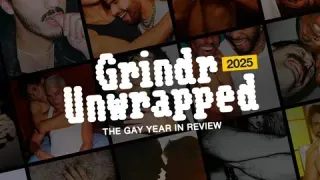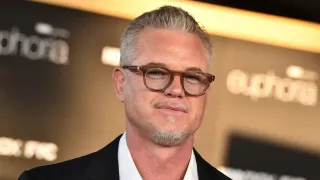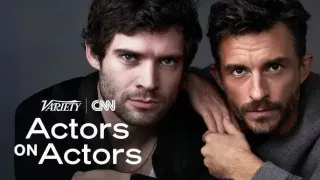April 2, 2022
Singer John Holiday to Perform at Opera Parallèle Gala Benefit
Jim Provenzano READ TIME: 2 MIN.
John Holiday, the acclaimed countertenor known for opera, pop and jazz singing, will headline a benefit for Opera Parallèle at Saint Joseph's Arts Society in SoMa on April 14.
The singer, known for his spectacular range and versatile style, will perform several songs, including the classic Harold Arlen The Wizard of Oz song, "Over the Rainbow," which is also the theme of the benefit.
The event will support Opera Parallèle's launch of a new LGBTQ+Ally social network, the Rainbow Chorus, and their July 14-17 production of the Philip Glass opera, La Belle et la Bête (Beauty and the Beast) at SF Jazz's Miner Auditorium.
Holliday has been the recipient of numerous music awards since his career began. He has degrees from Southern Methodist University, Cincinnati College and Conservatory of Music, and the Juilliard School. The gay singer came to national fame when he competed on the NBC TV show The Voice.
"For me the most important aspect of picking a song is the idea of connectedness," said Holiday in a March 2021 interview with the Bay Area Reporter. "What is it that I can bring to the floor that will allow my audiences to have some kind of connected tissue to the text? Is there something emotional, is there some kind of statement that the song is making? Is there some kind of statement the song is making that goes along with my platform? How does it make me feel? If it makes me feel good maybe it'll make someone else feel good."
"When we selected the theme of 'Over the Rainbow' for our benefit celebration - thinking of the dispersion of light and hope in our community, I immediately thought of John Holiday as the perfect artist," said Opera Parallèle General and Artistic Director Nicole Paiement. "John's astonishing voice has a myriad of colors that take you from opera and jazz, to gospel and pop music. He is also a powerful storyteller with an amazing life story of his own and a generous spirit on stage. His magnetism will magically pull us together into a colorful evening."
The evening at the elegant former church will begin at 5:15 p.m. with arrivals for a pre-event sponsor reception, including a Meet and Greet with John Holiday. Later at 6:30 p.m., Opera Parallèle will welcome all Benefit Celebration guests with a reception of cocktails and hors d'oeuvres.
During the evening, Rainbow Chorus Co-Chairs Deb Stallings and Paul Woolford will announce the new LGBTQ+Ally social network, the Rainbow Chorus.
Tickets for the April 14 Benefit Celebration at 1401 Howard Street begin at $300 per person. All guests will be required to show proof of full COVID-19 vaccination and required to wear masks when not eating or drinking. If eligible, Opera Parallèle strongly encourages all attendees to obtain a vaccine booster by March 31.
Help keep the Bay Area Reporter going in these tough times. To support local, independent, LGBTQ journalism, consider becoming a BAR member.






